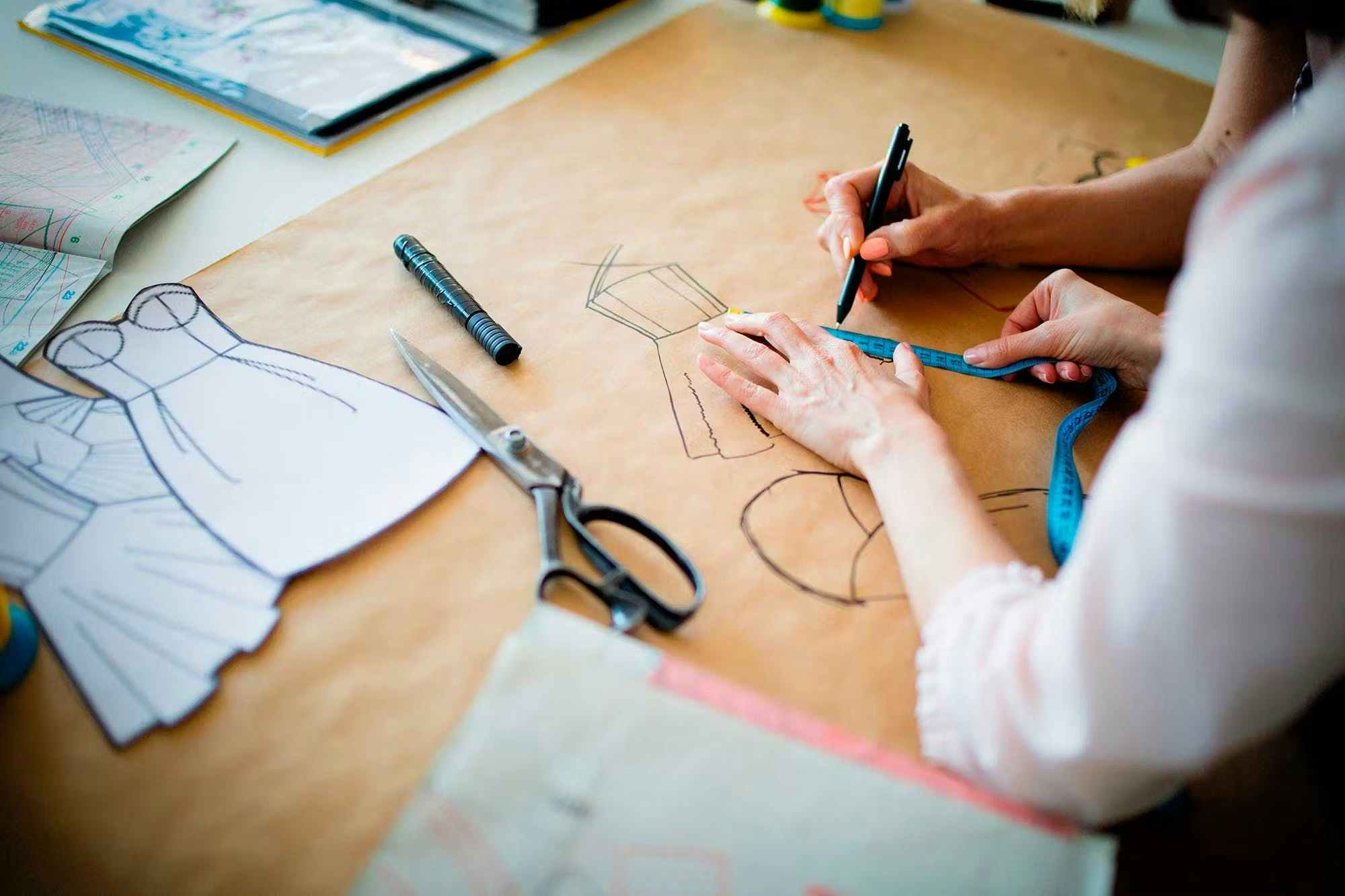What Courses Do Fashion Majors Take?

College degrees in fashion span several different specialties. Some schools offer degrees in fashion as a whole, others in more specialized fields like fashion journalism or fashion marketing, and others in even more specialized fields like knitwear or fashion photography. The courses you’ll take while pursuing a bachelor’s degree in fashion will vary by program, but we’ve compiled a general list of courses you can expect to be required to take. Note that because there are so many different schools and so many different types of fashion degrees, this is a generalized list; course titles and course descriptions may vary.
- Fashion Marketing: You’ll learn how to promote a brand and/or business, including creating and running advertising campaigns, managing social media accounts, understanding what affects the supply and demand of a product, analyzing market trends to predict future popular styles, and overseeing the development of products accordingly.
- Retailing: This covers merchandise buying, product pricing, and all the ins and outs of running a retail store, including layout and design, customer experience, and product placement. Some courses will also cover online retailing.
- Finance in Fashion: You’ll learn how to develop a financial strategy for a company, price products in a way that will both appeal to the customer and drive revenue, keep financial records, and troubleshoot financial problems.
- Textiles: You’ll learn about the different types of textiles, textile production processes, what customers are looking for in a textile, and what textiles are trending and why.
- History of Fashion: This course will cover how fashion has evolved over time and how it both reflects and influences culture.
- Clothing Construction: You’ll learn how to follow and create patterns, how to work with different textiles, and how to assess and alter the fit of apparel.
- Drawing: You’ll learn 2D drawing skills that can be used to design products.
- Fashion Photography: This course will teach you photography skills, lighting techniques, and photo editing, along with how to choose a model, photograph a model, and run a fashion shoot.
- Fashion Styling: You’ll learn how to create an image that coincides with a brand and organize and run a photoshoot that supports that image. This content could then be used in magazines, ad campaigns, or on websites.
- Fashion Journalism: This covers basic writing skills, which are then applied to writing specifically about fashion. You’ll learn how to report on fashion events, document trends, and write style critiques.
- Clothing Collection: The name of this course will be different from program to program, but the gist of the course will be the same; it’s a class that helps you develop a personal design philosophy and begin work on a portfolio. If you’re going into fashion design, that might mean that you build a collection of patterns and clothing. If you’re going into fashion marketing, you might design logos and plan out a business strategy.
If you’re interested in a career in fashion but you attend or are planning on attending a university that doesn’t offer fashion-related degrees, you can still use your college coursework to prepare you for the fashion industry. Some courses you can take that, though not necessarily fashion-specific, might help you get your foot in the door of your first fashion job are as follows:
- Sewing
- Photography
- Drawing
- Art History
- Marketing
- Journalism
- Finance
- Interior Design
Recommended Articles


College Prep
Not Sure What Career or Major to Choose? Explore These Pre-College Courses for High School Students
Read Article